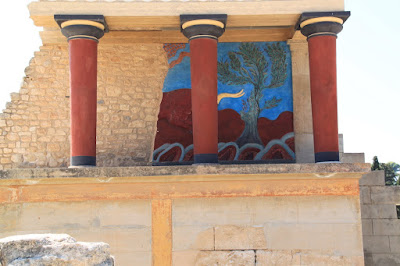Alexander the Great's achievements were one of his favorite childhood tales, whereas ancient Greece and classical antiquity piqued his curiosity from a very young age. His fascination with Hellenic civilisation, in fact, took Omar Sultan all the way to the University of Thessaloniki to study the classics and archaeology.
Decades later the classically-educated Sultan serves his native Afghanistan as Central Asian country's deputy culture minister.
As fate would have it, Sultan was also a student researcher on the team assembled by noted 20th century Greek archaeologist Manolis Andronikos to excavate the ancient site of Vergina - which the Andronikos' team later established as one of the pre-eminent Macedonian royal seats of antiquity. It was fitting that an Afghan archaeologist was present at the excavation of the significant Macedonian royal city, as the dynasty's legendary warrior-king, Alexander the Great, was responsible for bringing Hellenic civilisation all the way to ancient Bactria ( Afghanistan ) and much of the Near East - an era known to historians today as the Hellenistic era.
Sultan, a fluent Greek speaker, was born in Kabul in 1949 where he passed his childhood and went to the local school, where he would enjoy his first introduction to ancient Greek civilisation. ANA-MPa
"What I remember from my childhood is being overwhelmed by ancient Greek history. Stories referring to Alexander the Great and classical antiquity were of great interest to me. I studied whatever I could that dealt with Greek civilisation. My joy was unbelievable when in 1969, at the age of 19, I won a scholarship for the Aristotle University of Thessaloniki," he recalls.
The young Afghan student arrived in Thessaloniki without any knowledge of Greek but he studied hard.
"In Thessaloniki I had the best time of my life. I was a young man from a foreign country but my fellow students embraced me from the first moment. I can't forget the wonderful places I visited and the friends, the food but most of all the university and my professors, and, of course, the unforgettable experience of the excavation in Vergina as a student of Prof. Andronikos," he states:
In 1975, Sultan concluded his studies and returned to his native country, where he worked as a high government councilor for two years. In 1978 he briefly returned to Greece for a couple of months before heading back to Kabul , roughly a year before the Soviet invasion of the country following a coup.
He subsequently found himself in the United States , and specifically at the University of North Carolina , where he taught archaeology until 2002.
Following the overthrow of the Taliban in Afghanistan , the Karzai government invited him back to the ravaged country to assume the post of deputy culture minister.
"My top priority was to safeguard and promote the Afghan culture. When I returned to Kabul from the United States the archaeological museum of the city was destroyed. The Taliban and incessant warfare had destroyed many of our monuments. The land was devastated and the people ravaged. Young people should know our culture, but because of the war there was a danger they would not; I had a great deal of work to do".
" Greece has helped us immensely in the rehabilitation of our destroyed monuments. I contacted then Greek Culture Minister Evangelos Venizelos and after a series of talks, the Greek government, via UNESCO, offered us US$750,000 for the restoration of Kabul 's archaeological museum. It was a great achievement. More than 500 Afghan students and pupils visit the museum every day and we are extremely happy for that," Sultan said in perfect Greek.
source: ana-mpa.gr

























































